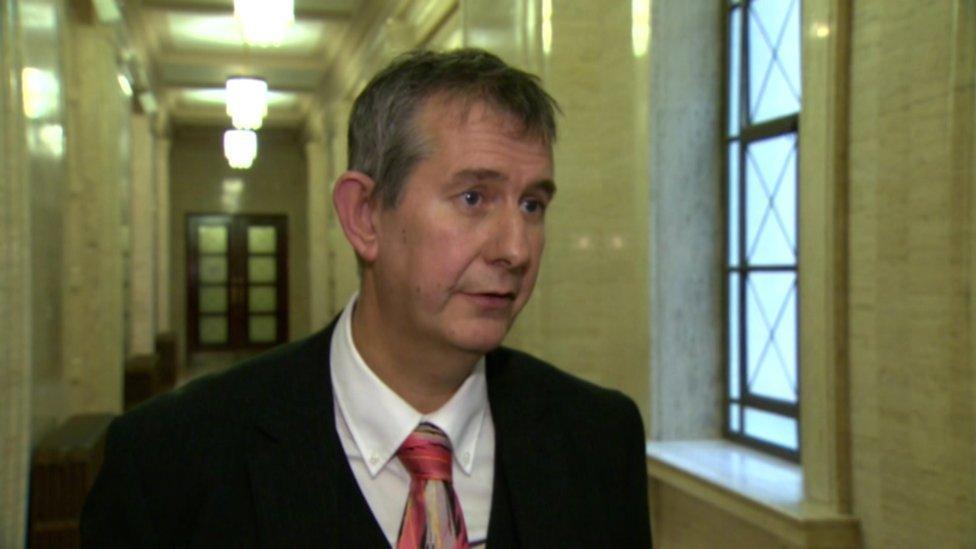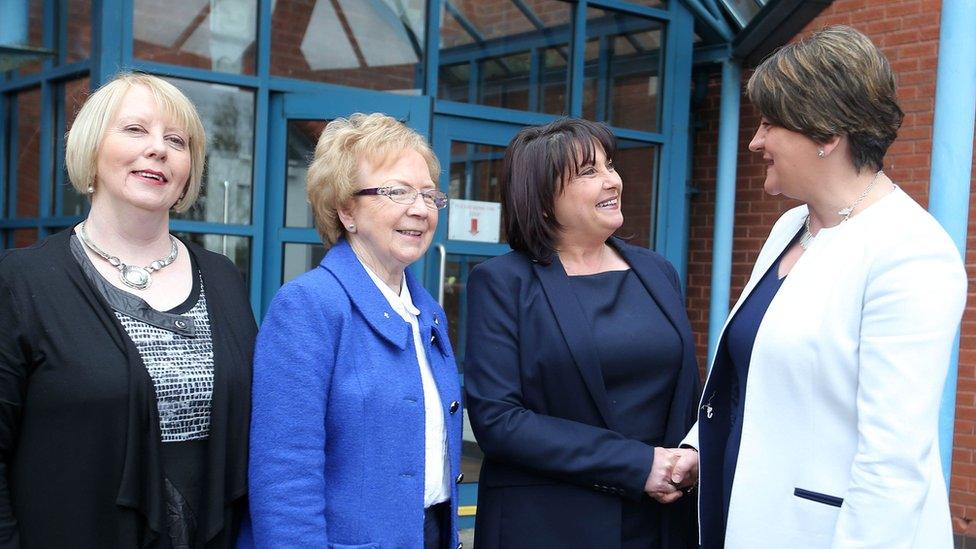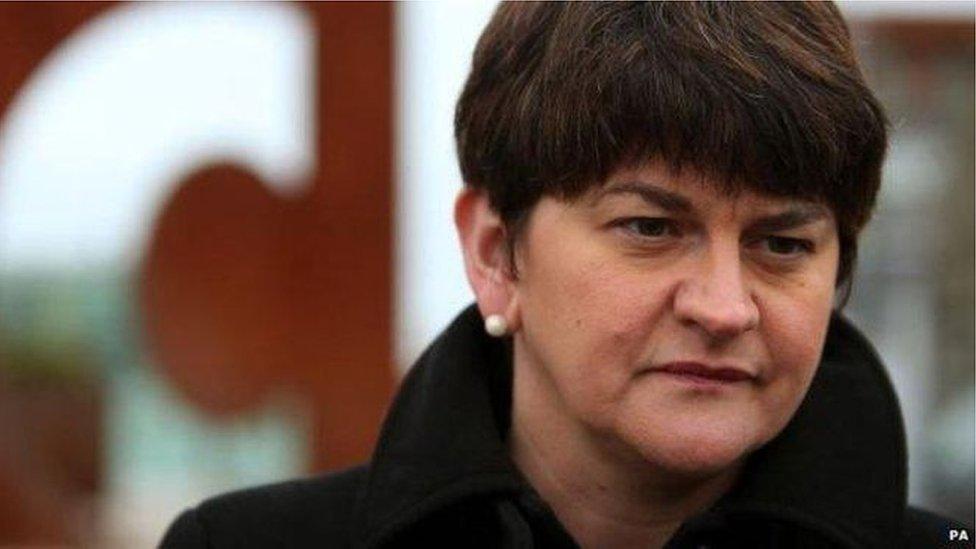DUP 'called Irish Language Act costs reasonable'
- Published

Edwin Poots, a former DUP minister for culture, arts and leisure, is alleged to have told Conradh na Gaeilge their cost estimates were reasonable
The Democratic Unionist Party (DUP) described a £19m estimate to implement an Irish Language Act as "reasonable," an Irish language group has claimed.
The campaign group, Conradh na Gaeilge (The Gaelic League), met a DUP delegation in April, including party leader Arlene Foster and Edwin Poots.
Conradh na Gaeilge said Mr Poots told them the £19m cost was "reasonable".
The DUP did not confirm or deny the claim, but told the BBC: "Our views are well known and documented."
In a statement issued to the BBC's Talkback programme, the party said: "We want to see mutual respect for all languages and cultures in Northern Ireland but not one elevated above all others."
The issue has been a major sticking point in talks to restore devolution at Stormont.
'Feed a crocodile'
When asked about the issue in February this year, Mrs Foster said the DUP would never agree to an Irish Language Act.
Alluding to Sinn Féin's demand for the legislation at that time, she said: "If you feed a crocodile it will keep coming back for more."
However, in April, Mrs Foster said she wanted to meet Irish speakers, to better understand those who love the language.
Later that month, the DUP leader visited Irish speakers at a Newry school and used the Irish phrase "go raibh maith agat" [thank you].
DUP leader Arlene Foster says thank you in Irish
The following day, 27 April, Conradh na Gaeilge met a DUP delegation which included Mrs Foster, Mr Poots, South Belfast MLA Christopher Stalford and party advisor David Graham.
The group's advocacy manager, Ciarán Mac Giolla Bhéin, told Talkback the delegation seemed "genuinely interested" in Conradh na Gaeilge's proposals.
Mr Mac Giolla Bhéin said the £19m estimate would be spent over five years, to give the Irish language legal status and protection.
Those measures would include the appointment of a language commissioner and the establishment of a "central translations unit".
'Pressure on public expenditure'
Their research also included estimated costs of providing translators in the legal system, so the Irish language would be an option in the courts.
Mr Mac Giolla Bhéin, said £9m of the £19m bill would be spent on "one-off costs," needed to establish initial infrastructure to support the language.
However, several callers to the programme expressed concern about the proposals, at a time when public money is needed to support health, education and roads.
Mr Mac Giolla Bhéin said: "We were mindful throughout the completion of this document that there is obviously pressure on public expenditure at the moment.
"There is obviously a political question to solve here - that we aren't in a situation whereby there is broad political support for this.
"We know that there is difficulty around this, so what we attempted to do was to balance that with the legitimate expectations of the Irish language community."
'Considerable development'
To produce its costings. Conradh na Gaeilge considered estimates produced by Sinn Féin's Carál Ní Chuilín to introduce an Irish Language Act when she was Stormont's minister for culture, arts and leisure.
Mr Mac Giolla Bhéin told Talkback they also looked at the costs of official language status in the Republic of Ireland and Wales.
The group believes that ongoing costs of maintaining the Irish Language Act would decrease over time, to about £2m per year.
In a statement, Conradh na Gaeilge's president, Niall Comer, said the view expressed by Mr Poots during their meeting was "significant".
"We see this as a considerable development, considering the public statements previously made by the DUP in which cost was used as the main obstacle to progressing legislation."
Conradh na Gaeilge was set up in 1893 by Douglas Hyde, a Protestant from County Roscommon.
He was a leading Gaelic scholar and writer who campaigned for the preservation and promotion of the Irish language.
Hyde later served as the first president of Ireland, from 1938 to 1945.
- Published26 April 2017

- Published6 February 2017
